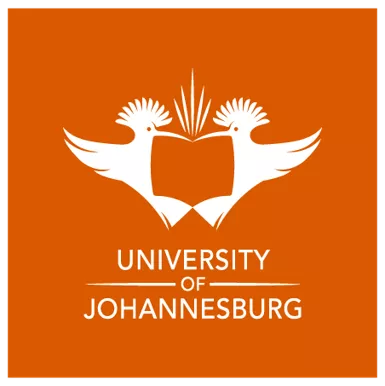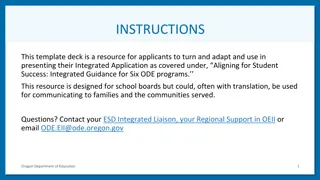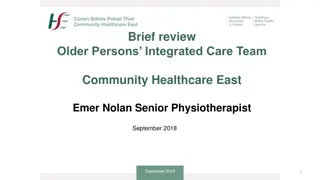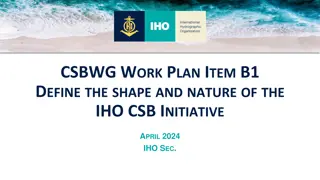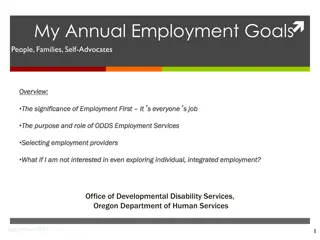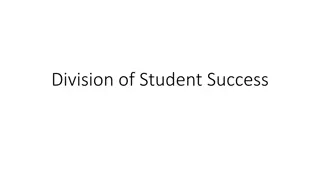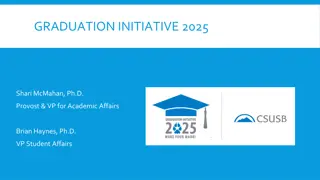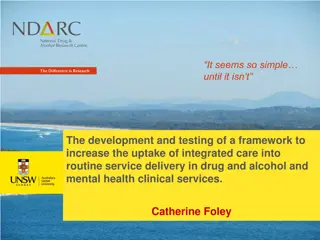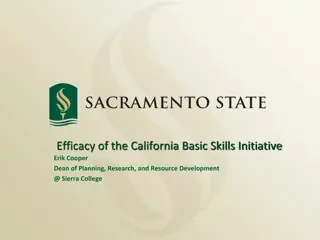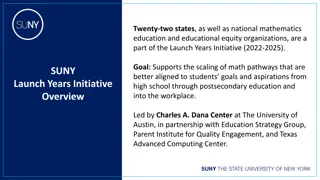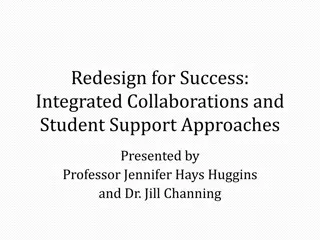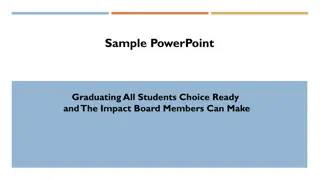UJ Integrated Student Success Initiative Overview
The Integrated Student Success Initiative (ISSI) at UJ focuses on improving student success by addressing problematic modules through data-informed interventions. By identifying and supporting Priority Module Index (PMI) modules, UJ aims to enhance completion rates and overall academic achievement. The initiative involves collaboration with faculty, top-management support, and resource allocation for effective interventions. Institutional structures and resources are in place to ensure the success of the program and provide comprehensive support to students.
Download Presentation

Please find below an Image/Link to download the presentation.
The content on the website is provided AS IS for your information and personal use only. It may not be sold, licensed, or shared on other websites without obtaining consent from the author.If you encounter any issues during the download, it is possible that the publisher has removed the file from their server.
You are allowed to download the files provided on this website for personal or commercial use, subject to the condition that they are used lawfully. All files are the property of their respective owners.
The content on the website is provided AS IS for your information and personal use only. It may not be sold, licensed, or shared on other websites without obtaining consent from the author.
E N D
Presentation Transcript
The Integrated Student Success Initiative (ISSI) at UJ Andr van Zyl and Hemali Joshi
Background Module credit success as measure of success Minimum-time completion Minimum-time + 1 completion Move from High Risk modules to Priority Modules Priority Qualifications finder being developed (based on M+1 completion rates) Footnote 2
How the problem is defined and identified: The Priority Module Index Dr Stoop assisted UJ with re-thinking our approach In the past modules with low success rates were identified as problematic It is actually the contribution of the module to the total credits lost that is most important. (Module Size; Pass Rate; Credit Weighting) It was found that 20% of the modules is causing almost 80% of the losses in successful credits This results in an Institutional Priority Module Index Footnote 3
What do we do about it?: The Integrated Student Success Initiative (ISSI) This is sub-divided into Faculty PMI lists for intervention Final PMI Faculty lists are completed in consultation with the Vice Dean Teaching and Learning 45 PMI modules are identified and intervened in per semester The ISSI aims to find creative and academically sound ways to address problems in PMI modules. This is done through a collaborative and intensive process through which available resources are focused on assisting these modules in a thoughtful and accountable way. The ISSI is: Data informed (Increasing in depth and relevance over time) Top-Management supported ADC driven (being pushy) Faculty supported Providing comprehensive support Footnote 4
Institutional structures to support student success Senate Teaching and Learning Committee (reports to Senate) Student Success Committee Vice-Dean s Teaching and Learning Faculty teaching and Learning committees ISSI implementation committee Footnote 5
Resources focused on the PMI per semester Support staff and expertise UJ funded E-books Strategic tutor fund Learning development support Literacies development support CAT staff UJ Library staff PsyCaD staff Professional Academic Staff Development ISSI support fund Research informed and supported Footnote 6
What does this look like in practice Data gathered and analysed by ADC/ADS PMI list finalized in consultation with Vice Dean T and L Group Faculty meetings (optional) Faculty generated initial ISSI plan on template ISSI implementation team meets with lecturer(s) Implementation plan is fleshed out and finalised Implementation of project ADC and Faculty representatives ISSI team leader drives and reports on the process ISSI implementation team meeting every two weeks Follow up meetings as required Implementation feedback and lessons learned Evaluate and report on intervention to SSC and STLC Before classes start During the semester Footnote 7
Monitoring and evaluation (ISSI implementation team level) Footnote 8
Monitoring and evaluation: Institutional 82.0% 81.7% 80.6% 79.5% 79.3% 78.9% 78.5% 78.0% 77.0% 75.8% 73.1% Average of 2017 Average of 2018 Average of 2019 64.9% 0 1 2 3 Footnote 9
Module name ECONOMICS 1A (DEGREE) ENGLISH 1A FINANCIAL ACCOUNTING 1A FINANCIAL ACCOUNTING 2A ANATOMY AND PHYSIOLOGY 1A BUSINESS MANAGEMENT 1A FINANCIAL MANAGEMENT 3A ENGLISH 1C (FIRST SEMESTER) EDUCATION STUDIES 1A TEACHING METHODOLOGY&PRACTICUM 2A INTRODUCTORY MATHEMATICAL ANALYSIS A ENGINEERING MATHEMATICS V 1A ENGINEERING MATHEMATICS 1A TEACHING STUDIES 1A ACCOUNTING 1A (DEGREE) APPLIED MATHEMATICS 1A TAXATION 3A(DEGREE) COMMUNICATION I MODULE 1 ELECTROTECHNOLOGY 1A FINANCIAL ACCOUNTING 3A KINESIOLOGY 1A MATHEMATICS: FINANCE & BUSINESS 1A INTRO TO MATHEMATICS FOR INTERME PHASE 1A MATHEMATICS FOR THE FOUNDATION PHASE 1A AUDITING AND INTERNAL CONTROL 2A AUDITING AND INTERNAL CONTROL 3A BUSINESS LAW 1A COMMERCIAL LAW 1A INTRODUCTION TO ENGINEERING DESIGN 1A OPERATIONS MANAGEMENT 1A OPERATIONS MANAGEMENT TECH.3A POLITICS 1A SOCIOLOGY 2A SPORT ADMINISTRATION 1C Total including modules rate 0 Total excluding modules rated 0 Module code ECO01A1 ENG1AA1 FAC11A1 FAC22A2 ANP01A1 BMA11A1 BSR3A01 ENG0CA1 EST10A1 FSM10A2 MAA00A1 MATE1A1 MATENA1 TST10A1 ACC01A1 APM01A1 BEL3A01 COS1AA1 ELTELA1 FAC33A3 KIN01A1 MATDCA1 MATINA1 MFP10A1 AIC22A2 AIC33A3 BUL41A1 COL41A1 IINEEA1 OPM11A1 OPT33A3 POL1AA1 SOC2AA2 SPA01C1 2017 2018 2019 Difference ADC ratings 87,0% 77,0% 78,3% 85,8% 71,2% 83,2% 80,1% 85,0% 91,3% 92,1% 76,8% 70,4% 59,0% 79,6% 79,3% 62,5% 84,2% 94,5% 56,7% 66,6% 60,3% 52,2% 85,5% 88,9% 77,7% 77,6% 72,8% 87,5% 80,3% 88,2% 72,2% 76,5% 78,9% 81,5% 77,7% 77,3% 86,9% 81,8% 74,6% 83,5% 80,1% 68,2% 77,8% 83,1% 90,1% 93,7% 69,5% 69,4% 55,3% 82,8% 80,7% 70,1% 73,1% 85,5% 61,1% 70,6% 42,2% 62,6% 49,6% 53,3% 72,3% 81,6% 70,6% 88,7% 76,7% 70,8% 79,6% 81,7% 76,0% 82,3% 74,3% 73,1% 88,2% 85,2% 77,5% 63,2% 73,2% 85,6% 70,6% 85,4% 90,4% 88,0% 63,9% 79,2% 69,2% 89,6% 72,2% 74,2% 66,9% 81,4% 86,6% 76,3% 85,2% 61,3% 78,8% 74,8% 79,0% 77,1% 78,9% 88,4% 72,7% 86,2% 79,8% 81,2% 72,6% 89,8% 78,6% 78,8% 1,3% 3,3% 2,9% -20,3% -6,9% 17,4% -7,2% 2,3% 0,3% -5,7% -5,5% 9,8% 13,9% 6,8% -8,5% 4,2% -6,2% -4,1% 25,4% 5,7% 42,9% -1,3% 29,1% 21,5% 6,7% -4,5% 8,3% -0,2% -4,0% 15,4% 0,2% -0,4% -3,3% 7,5% 4,3% 5,7% 0 0 0 0 1 1 1 1 1 1 1 1 1 1 2 2 2 2 2 2 2 2 2 2 3 3 3 3 3 3 3 3 3 3 2 2 Footnote 10
Lessons learned Institutional support (top management, Faculties and structures) Resource support (limited) Bed-side manner and framing of interventions Data and its use is key Knowing the problem is easy, finding solutions is where the hard work takes place Agility, creativity, adaptability and academic integrity of interventions Common principles but customised planning and implementation Context, context, context Monitoring and evaluation is important but also a danger Footnote 11

 undefined
undefined


